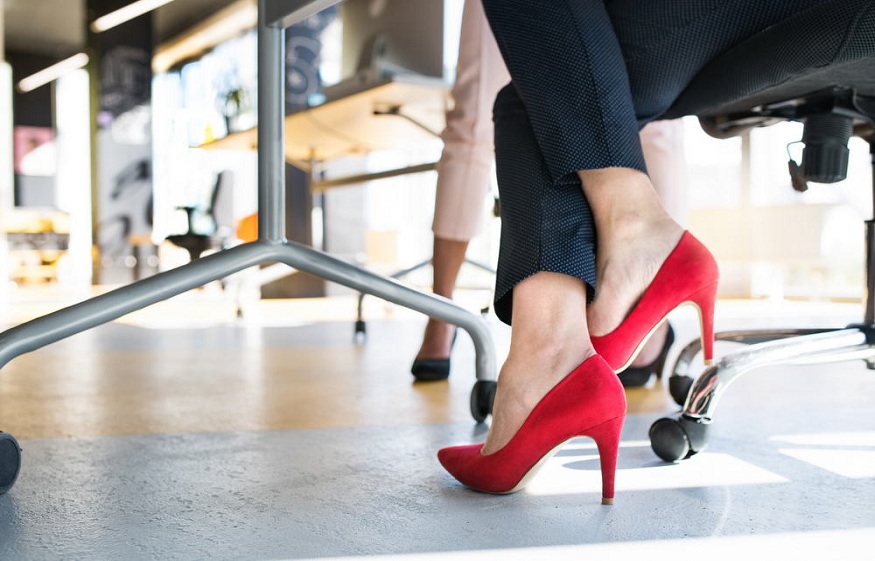Imagine the embarrassment: you are in the middle of an important meeting or having lunch with colleagues and suddenly you’re hit with an unpleasant whiff of shoe odor. This common issue can be mortifying and uncomfortable for both the person experiencing it and those around them. With that in mind, let’s take a look at the causes and consequences of shoe odor and discuss some practical tips for addressing the issue, maintaining your professional image, and feeling confident in your workplace.
Causes of Shoe Odor
It is important to understand the factors that contribute to shoe odor. Biological factors such as bacteria and sweat play a significant role. As we walk, our feet produce sweat, creating a moist environment that bacteria thrive in. These bacteria break down the sweat, producing an unpleasant smell. Environmental factors like humidity and temperature also contribute to shoe odor by affecting the growth of bacteria and the rate at which sweat evaporates.
The materials and construction of your shoes can also influence odor development. Some materials, like synthetic ones, are less breathable and trap moisture. This exacerbates the problem. Lastly, personal habits and hygiene can impact the severity of shoe odor. Neglecting proper foot care or wearing the same pair of shoes daily can make matters worse.
Strategies for Prevention and Management
Daily foot hygiene practices
To prevent shoe odor, start by incorporating daily foot hygiene practices. Wash your feet with antibacterial soap to eliminate odor-causing bacteria. Follow this by drying them thoroughly, paying particular attention to the spaces between the toes. Applying foot powder or using deodorizers can also help control sweat and reduce odor.
Appropriate footwear selection
Choosing the right footwear is essential in combating shoe odor. Pick shoes made from breathable materials such as leather, canvas, or mesh as these allow for better air circulation. Ensure your shoes fit well and provide proper support as uncomfortable footwear can lead to increased sweating. Additionally, consider alternating between different pairs of shoes to give each pair a chance to dry out and air properly.
Shoe care and maintenance
Regularly clean and air out your shoes to prevent odor buildup. You can also use a shoe deodorant or odor-absorbing inserts to help neutralize smells, say the good folk at ShoeFresh. Do not forget to replace worn-out shoes as they may harbor odor-causing bacteria.
Emergency Shoe Odor Solutions
Sometimes, despite our best efforts, shoe odor strikes at the most inconvenient times. In such cases, you can try discreet workplace remedies like shoe wipes, sprays, or quick-drying foot powders to address the issue temporarily. Another option is placing teabags or dryer sheets in the shoes overnight or during breaks as these can help absorb moisture and neutralize odors. If the problem persists, consult a podiatrist for professional advice.
Creating a Supportive Workplace Environment
Dealing with shoe odor in the workplace is not just about finding individual solutions. It is also about creating a supportive environment that encourages open communication and empathy. Providing facilities such as well-ventilated locker rooms, access to foot care products, and spaces to store and air out shoes can make a significant difference to those who suffer from this embarrassing issue.
In conclusion, shoe odor is quite a common issue that can cause discomfort and embarrassment in the workplace. But by understanding the causes and implementing daily foot hygiene practices, you can effectively prevent and manage this issue. In addition, creating a supportive work environment that encourages open communication and provides resources for odor management can help everyone feel more comfortable and confident at work.

